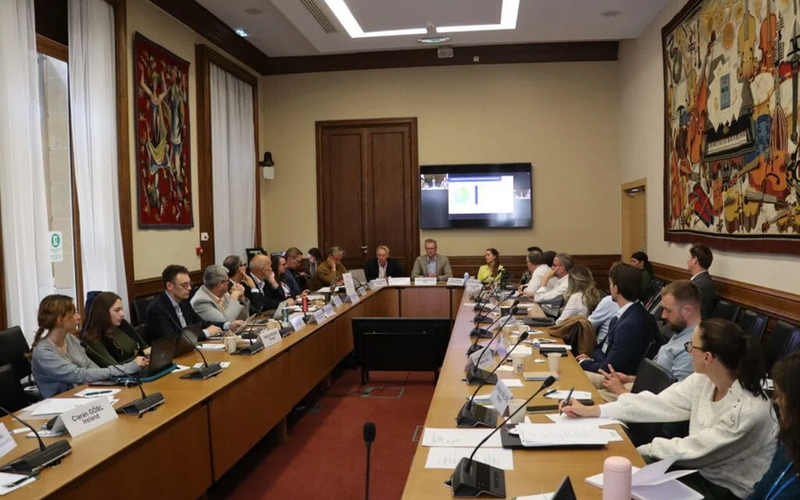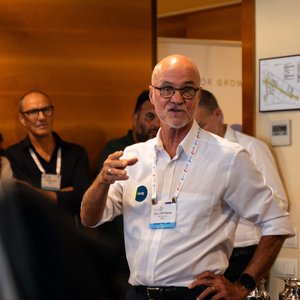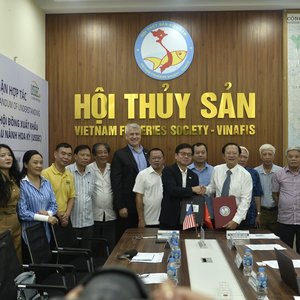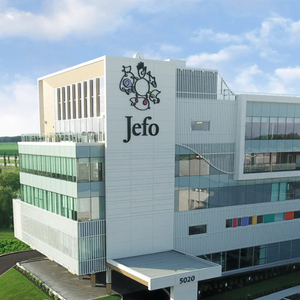The first joint seminar of the Global Feed LCA Institute (GFLI) and the Organisation for Economic Co-operation and Development (OECD) marks an important milestone in the international dialogue on measuring and reporting environmental footprints in the animal feed sector. Over 40 policymakers from the 38 OECD member states, industry representatives, and experts from across the agri-food supply chain gathered in Paris, joined by more than 160 online participants throughout the day, to address both the challenges and opportunities of environmental footprinting.
“It was particularly encouraging to see a wide range of stakeholders sharing knowledge and best practices,” said Stefaan Van Dyck, Chair GFLI. “The exchange will further sustainability efforts throughout the animal protein supply chain and will ensure that science-based targets of the industry will be met.
Central questions of the day included: How can the complexities of measuring carbon and environmental footprints be addressed within a global supply chain? How can governments anticipate regulatory and market pressures in this field? And how can synergies be created to simplify reporting obligations?
“The feed industry is increasingly measuring the environmental footprints of its products, which are important inputs in agri-food supply chains. It is valuable for us at OECD to learn about these fast-moving initiatives and explore synergies,” said Koen Deconinck, OECD Trade and Agriculture Directorate.
In plenary sessions, GFLI members, data providers, national feed associations, and tool developers shared their insights and expectations. Their contributions highlighted a demand for uniform methodologies and greater transparency across the supply chain.
The OECD provided the broader policy context, drawing on recent reports that highlight both the rapid growth of footprinting initiatives and the risk of fragmentation. Their 2025 follow-up study identified eight building blocks necessary for reliable and widespread measurement of agri-food carbon footprints. The collaboration with GFLI was recognized by participants as a crucial step in bridging policy development with sectoral implementation.
In the afternoon, policymakers and speakers engaged in discussions on the following steps: aligning market demand, reporting requirements, and sector initiatives to foster more coherent and efficient approaches.
“Sharing our case study at the OECD and GFLI meeting was a great opportunity to explore how data can help make agriculture more sustainable. We’re excited about the potential for collaboration to drive positive change in farming practices,” said Imke Hering.
If you could not attend the seminar but are interested in catching up, the seminar will be published, and the link will be shared through the GFLI.










